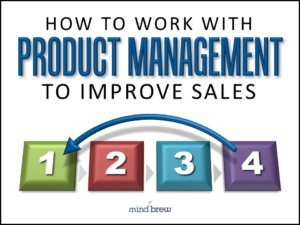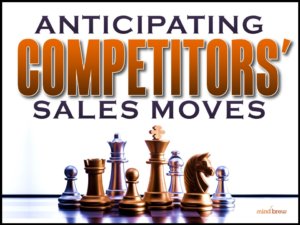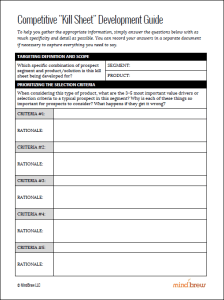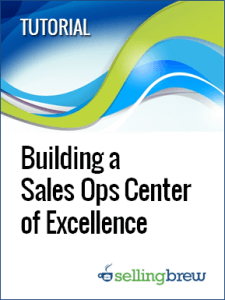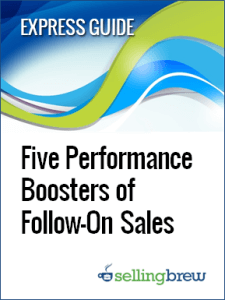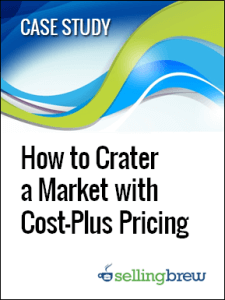As we’ve pointed out many times before, the quality and accuracy of the decisions being made upstream…in product management…can set limits or boundaries on sales performance in the marketplace. In fact, a large proportion of an offering’s ultimate selling power and potential can be “baked in” by product management long before a prospect even has a chance to see it.
Because these early decisions can act as a governor on sales performance, it makes your job that much harder when product management is falling down, missing critical steps, and/or making ill-informed decisions.
But how do you know? How can you tell whether product management is helping or hindering in-market sales performance? How can you tell whether product management is making your efforts more difficult than they really need to be?
In the on-demand webinar, Working With Product Management to Improve Sales, we highlight a number of tell-tale signs, including:
- Product line performance is rarely as predicted. When targets and projections are constantly being missed, it can often be a symptom of poor planning processes and an overall lack of market understanding and customer insight.
- Sales training is largely about features and functions. What product management teaches the sales team can be extremely telling. If there’s nothing about the needs of different segments, crucial value drivers, key differentiators to relevant alternatives, etc., that’s a big red flag because it likely means they haven’t done the necessary homework.
- The bulk of your catalog is comprised of “me too” offerings. When product management relies too heavily on the competition to do the homework instead of doing it for themselves, “new” products are often just copies of competitive offerings and usually late to the party.
- Products are introduced with little sales structure. When products are introduced with no market segmentation or targeting hierarchies, flat pricing and no volume schedules, no quality/value stratification, etc., this is another indication that the requisite legwork just hasn’t been done.
- Product managers are as quick to discount as sales reps. Product managers who’ve done their homework will have a lot of confidence in the value propositions being put forward…and they won’t be eager to cave-in to discounting pressure. Conversely, product managers who haven’t done the homework will often very quickly rationalize making “adjustments in the field.”
If you’re seeing some (or all) of these tell-tale signs in your business, first understand that you’re not alone. Unfortunately, there are a number of dynamics inside a typical product management function that virtually guarantee that most Sales Ops groups will find themselves in this situation to some degree.
Now, you shouldn’t get upset or angry about these deficiencies. Not publicly, anyway. Nor should you start pointing fingers or making accusations. That sort of thing might feel good in the moment, but it just makes people defensive and even more resistant to change. (And, it’s not a good look for you, internally.)
Instead, you should recognize the opportunity for improvement and get after it. As we discuss in the webinar, these deficiencies are not at all insurmountable. It’s not a quick fix, of course, but there are straightforward steps you can take to drive improvements and generate big performance gains.

